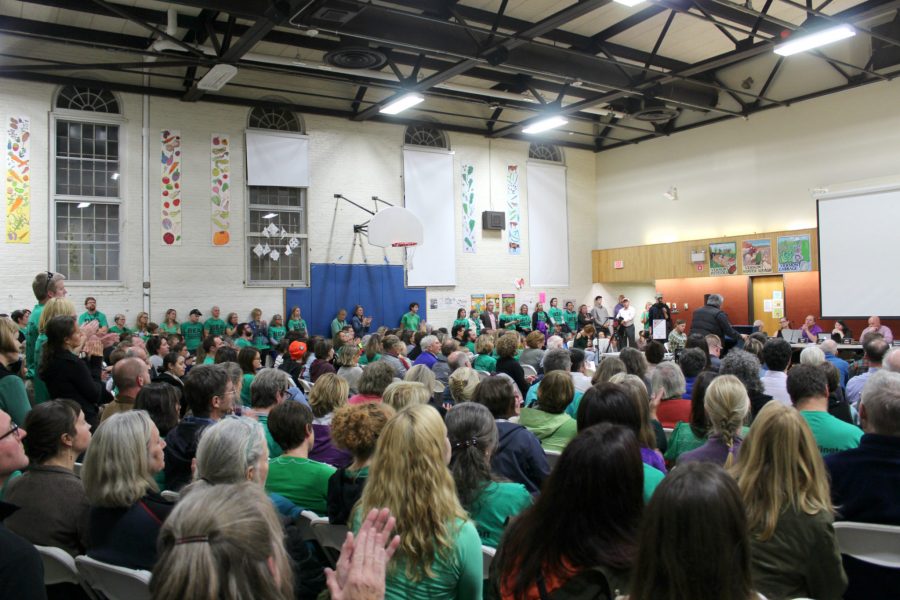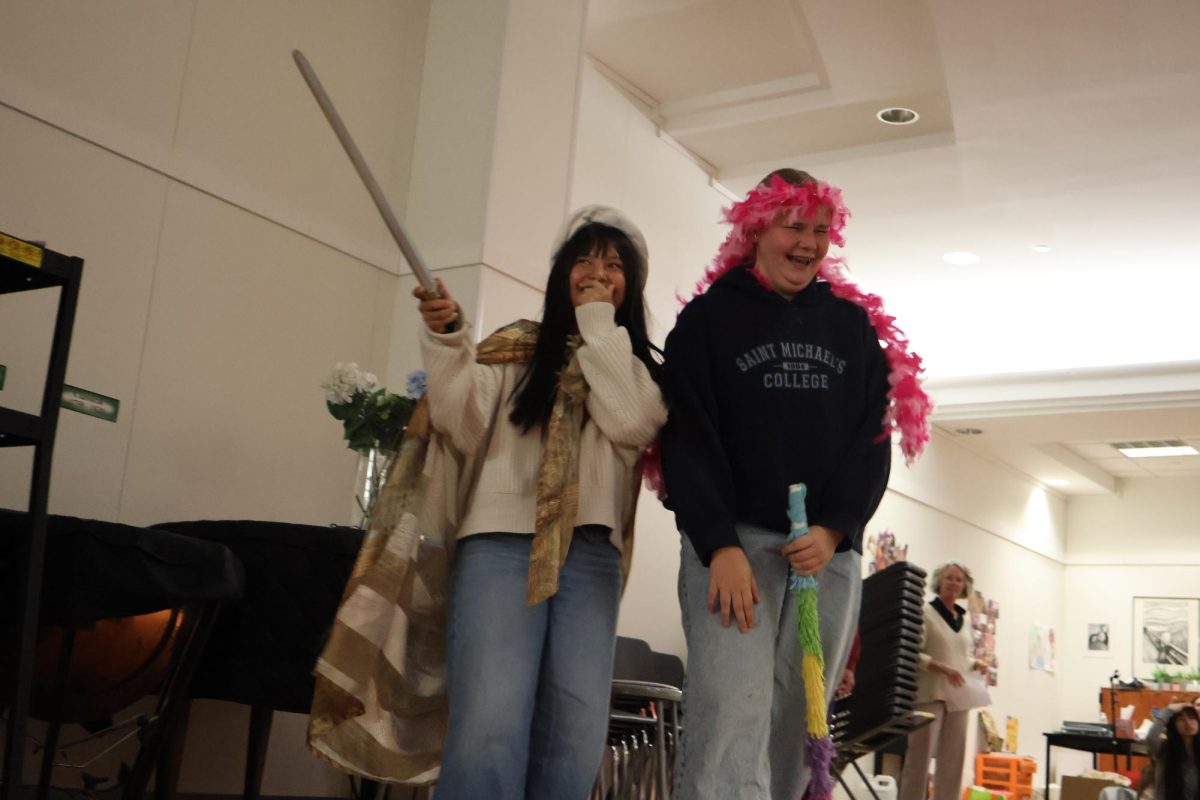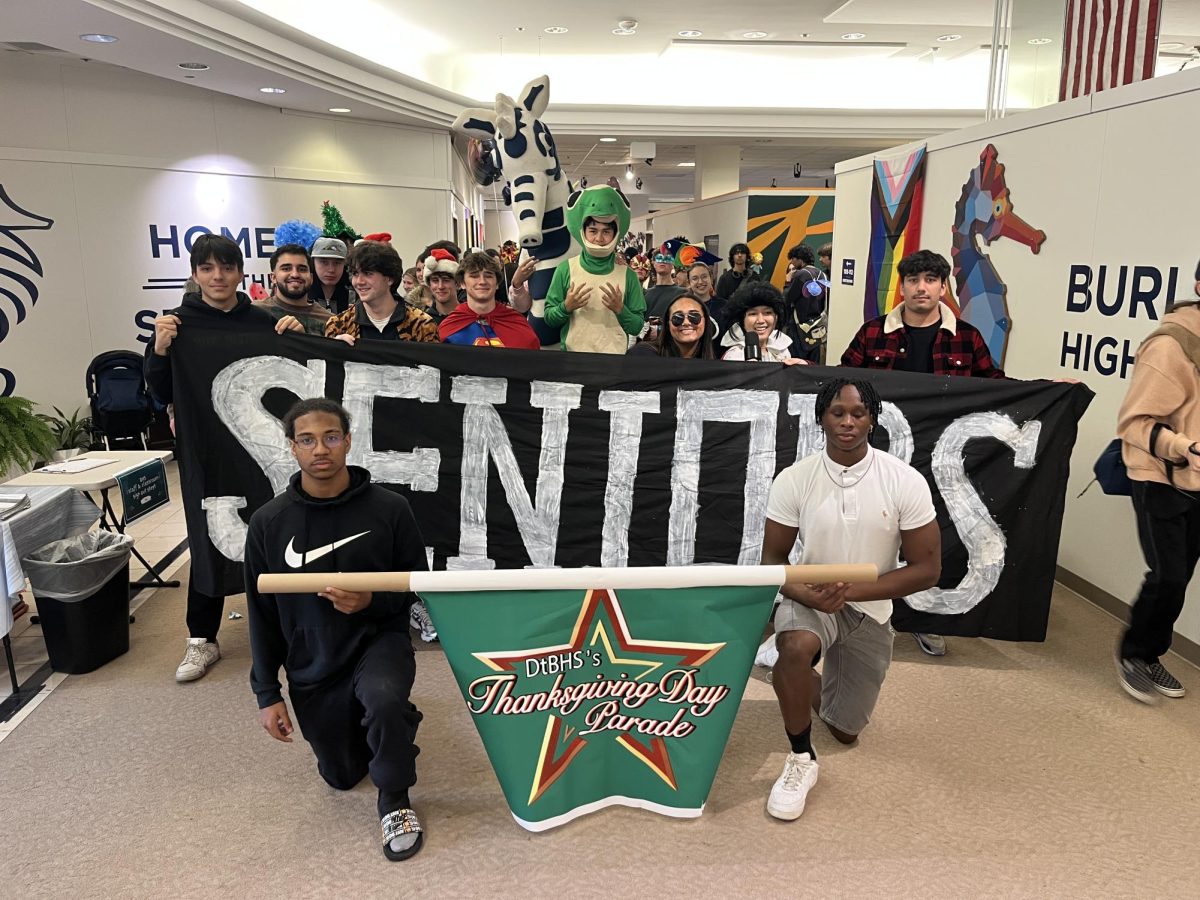Burlington teachers might be on the picket lines tomorrow.
The Burlington Education Association (BEA) voted to strike last Thursday if a tentative settlement is not reached during today’s mediation session. 96 percent of the 342 teachers present voted in favor of a work stoppage.
“We are acutely aware that a strike is disruptive for students, families, and for the community,” said Fran Brock, president of the BEA. “There is a chance to avoid this strike, and it will require the board’s negotiating team to approach our scheduled mediation with a singular desire: obtaining a negotiated contract settlement.”
The vote comes at a time of mounting public pressure to reach a deal. Hundreds of teachers and community members packed the Edmunds Middle School cafeteria for a school board meeting last Thursday to weigh-in.
Alison Segar, a single parent, said she has friends on the school board.
“If you tell me that there is no more money, I believe you,” she said. “Please come up with a peaceful resolution, please don’t let it be on the backs of our most vulnerable students.”
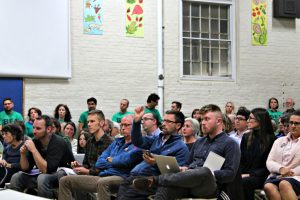
Multiple community members said they would join teachers on the picket line in the event of a strike, drawing thunderous applause from the crowd of mostly union members. The cafeteria was a sea of green, as BEA members all wore union shirts in solidarity.
A few speakers voiced their concerns over the rising costs of taxes in Burlington.
“I believe teachers should be well-compensated in salary and benefits, be it within the means of taxpayers to afford,” wrote Bob Duncan in a statement read by a neighbor. “The contract imposed by the school board may not be all that the teachers wanted, but it represents a fair proposal given the tax rate approved by the voters.”
School Board Member Brian Cina put a motion forward to extend the public comment period, as dozens of people signed up to speak. The decision was supported by the board.
Pete Wyndorf, a teacher at Milton High School, spoke in support of the decision to strike.
“It’s fundamentally unfair,” Wyndorf said of the imposed contract.
He described the importance of a union as the final line of defense in the event of unjust working practices.
“The only recourse is to strike,” he said. “This has been forced upon our teachers.”

Jeff Wick, a Burlington parent and lawyer, presented the board with a proposal. He suggested shifting some of the $1.5 million allocated for professional development into graduate tuition reimbursement, an area that was heavily reduced to only $80,000.
“It’s time. We have got to come to an agreement,” Wick said.
The meeting was originally scheduled to be in the Edmunds Middle School library, which drew sharp criticism from community members due the small size of the space. An online petition to change locations received over 200 signatures in less than 24 hours.
Brock is pleased with the many supportive speakers that attended the board meeting, and hopes they have an impact on reaching a settlement.
“School board members are officials elected by the residents of the city of Burlington,” she said. “They should be listening to their constituents.”
Bitter Negotiations
The Burlington School Board ended over a year of negotiations by imposing a contract on Sept. 13, making this the earliest in the process that working-conditions have been imposed in Vermont history, according to a press release by the BEA.
The BEA’s final offer accepted the recommendations made in a neutral fact-finder report, including the salary increase of 3.25 percent. The Burlington School Board has continually argued that the BEA’s proposed salary increase would prompt additional cuts and would not be affordable for the district. During a Sept. 15 meeting, the board repeatedly said the BEA’s proposal would require budget cuts of around $400,000.
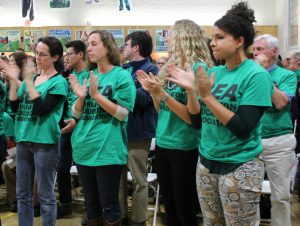
A lack of sufficient financial evidence, including a line-item budget, has been the driving argument opposing the board’s claim. The district released a 164-page document with account details for the current fiscal year, following a public records request by the Register last month. The document contained hundreds of blanks and missing figures.
The imposed contract ends negotiations and the collective bargaining process. The school board improved on its salary increase to 2.75 percent, removed experimental living contract language and now requires teachers to obtain permission from the superintendent to use personal leave days. The district is now allocating $80,000 for graduate course reimbursements, and requiring superintendent approval. Additionally, teachers must pay a one percent increase in health insurance contributions and the superintendent can determine initial salaries.
The imposed contract also freezes teachers on step in the salary grid, preventing them from receiving a raise for working longer in the district.
Final Mediation
Ira Lobel, a neutral mediator and New York City lawyer, called the union and board to a negotiation session on Oct. 19.
The board has authorized a strike beginning on Oct. 20 if a settlement is not reached.
“We can no longer stand by and allow the school board to continue to demean us, to disrespect us, to devalue us and the teaching profession,” Brock said.
She is unsure how negotiations with the board will go.
“I’m hoping that the community support is penetrating and that the board is going to come in with an open mind,” Brock said. “I’ve got to be optimistic, but I also have to be realistic, and if we can’t get some sort of tentative agreement then we’re going to have to go on strike.

Past Strikes in Vermont
A strike by Burlington teachers would be the first since 1978, an action which lasted for one week, according to the Vermont chapter of the National Education Association.
The worst strike in Vermont history took place in Hinesburg in 1984 and lasted for more than a year, until a ruling was made by the Vermont Labor Board. After being closed for two weeks, Hinesburg Elementary School reopened with substitute teachers and a union defector.
The most recent strike in Vermont took place in South Burlington in 2014, lasting for five days. All classes, athletics and afterschool activities were cancelled for the duration of the work-stoppage.
Impact on students
A pivotal moment during last Thursday’s meeting came when BHS sophomore Isaac Jenemann took the microphone to advocate for himself and his fellow students. He spoke of the negative impact a strike would have on the youth of Burlington.
“Striking would limit seniors’ access to letters of recommendation, along with information gathered through classes like senior seminar and talking with their guidance counselor,” Jenemann told the board. “Sports teams vying for a playoff spot might miss their chance at the championships, because they had to forfeit games and not practice during the strike. The musical will have to cancel rehearsals leaving them in a time crunch for their November show.”
Jenemann drew a standing ovation and thunderous applause from the crowd.
BHS Athletic Director Jeanne Hulsen is still unsure of the impact on athletics that a work-stoppage would have. Most coaches are part-time employees that are not unionized. Hulsen said she will receive a directive from the district administration, an action which has not taken place at this time.
Prior Coverage:
Union Rallies Against Imposition



